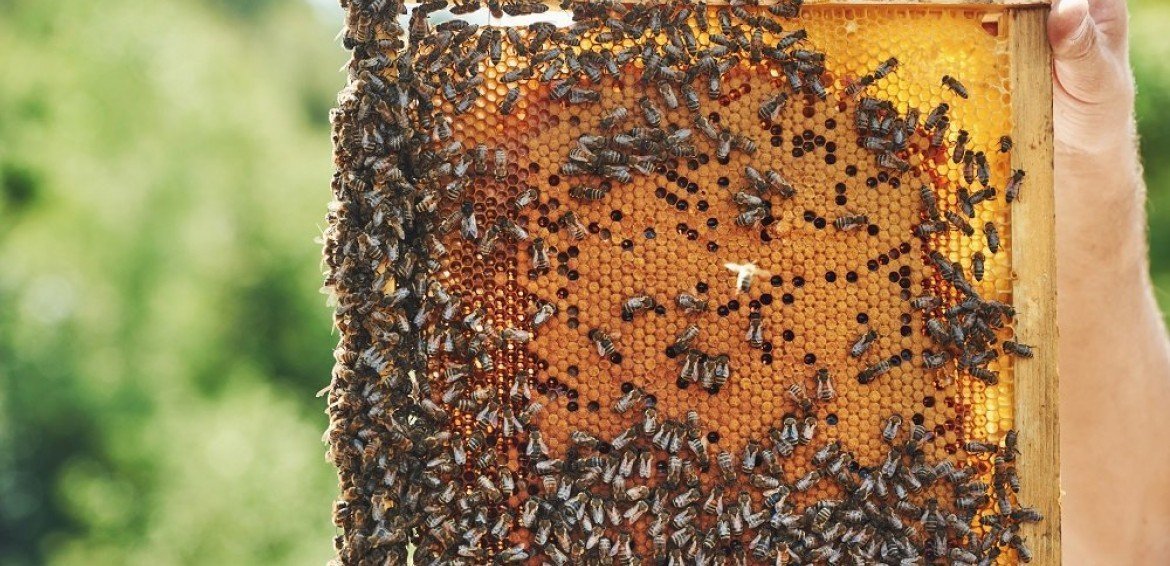blogs
Curiosities
Propolis properties: learn more about the purple gem
22/07/2020
Propolis is a product made by bees from buds and organic liquids present in plants. The word propolis comes from the Greek and means pro, 'in defense', and polis, which means 'city'. And in fact, the function of propolis is this: to defend the hive, protecting it from predators that can bring any harm to the bees.
Therefore, due to its power, propolis is not only able to benefit the hive. It can also be used by humans, especially those who want to increase their immunity or replace important nutrients for the full functioning of the body.
Therefore, we bring here important information about the properties of propolis. Learn about this powerful natural ingredient and understand how its use can benefit your health!
What is propolis made of?
Propolis consists mainly of resins and chemical substances that have high antioxidant and antimicrobial power. However, the base of these substances is not produced by bees. They collect these inputs from the plants and, during transport, end up enriching them with saliva and wax, which are also rich in nutrients.
Afterwards, this is all used to seal the hive. Due to the high defense power of propolis, it is not uncommon to find mummified insects, wrapped in propolis, with their structures preserved.
In fact, propolis was used for this purpose in ancient Egypt. There are reports of mummies discovered in sarcophagi that gave off the scent of propolis.
Is Brazilian propolis different?
In almost a hundred years of research, from different parts of the world and with different types of propolis, the effectiveness of the resin against microorganisms and on the immune system, as well as its anti-inflammatory effect, has been verified.
In Brazil, in the late 1950s, an accidental miscegenation of European and African bees gave rise to an even stronger and more resistant species. The Africanized bee, as it is known, gained prominence for having a great potential for propolis production.
However, that's not all: propolis of Brazilian origin has in its composition some flavonoids and aromatic acids (called polyphenols) terpenes, in addition to other chemical substances, which are not found in the same abundance in other species. This justifies its biological effect so marked.
Is there more than one type of propolis?
Due to the great biodiversity existing in Brazil, it was to be expected that we would have different types of propolis. This can be noticed by aspects such as color and characteristic chemical composition, which change according to the variables of each type.
However, within each of these typifications it is possible to find subtypes, which have the same bioactive compounds of their class, only in different amounts. In this case, the most studied Brazilian propolis currently, and with the best results, are Green Propolis (BRP) and Red Propolis (BRV).
Does propolis help with immunity?
According to recent studies, yes. As you know, we are currently experiencing a pandemic related to infection by Sars-CoV-2, known as the new coronavirus. Because it is a virus and propolis has a virucidal effect, scientific studies have already been published reporting the antiviral activity of Brazilian propolis against some classes of viruses.
Efficacy has already been verified against poliovirus type 1 (PV1) of poliomyelitis, the influenza virus (influenza), the HIV virus, the H1N1, the one that causes viral hepatitis and the herpes viruses type 1 and type 2, as well as those that cause dengue hemorrhagic fever. Finally, there is also efficacy against coronaviruses of animal origin.
In these studies, propolis from different origins in Brazil were evaluated. With effectiveness for this amount of virus, the chances of propolis helping in the prevention and treatment of Covid-19 are encouraging. There are even studies that research this solution. Clique aqui para saber mais sobre eles.
Do you understand why propolis is an important agent of replacement and promotion of immunity? To check out content like this, be sure to follow us here on the blog and follow us on social media. If you want our articles first hand, be sure to subscribe to the newsletter.
*Adaptation of the article “Propolis: the purple gold of the hive”, produced by the specialist in hive products Profa. Dr. Maria Cristina Marcucci. Click here to check the source material.






